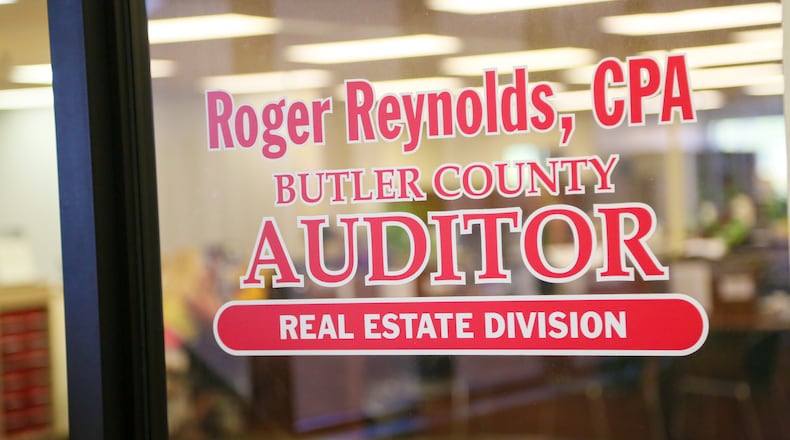The BTA disagreed saying the commissioner’s emphasis on the last year is not only supported by state rules but “comports with standard appraisal practice and existing real property valuation law.”
“Placing greater weight on certain data versus other data is a standard and accepted appraisal practice ... Many pivotal aspects of an appraisal are based upon the subjective judgment of the appraiser. Information is utilized or ignored. Various adjustments and formulas are selected. Methods, calculations, facts and extrinsic data are examined and considered and then applied or disregarded,” the opinion reads.
“In short, the search for true value is not furthered, but rather is hindered, by compelling the Tax Commissioner to treat data from all three years the same, and RC 5715.012 does not require or compel such equal treatment. It is very well established that sales closer to the tax lien date are more probative than remote sales.”
Reynolds told the Journal-News he was fighting to use the larger sample because “if we can use three years of sales data it’s a safeguard against large spikes in valuation. We’re primarily concerned with equalization in the reappraisal process.”
“This decision is unfriendly toward taxpayers and does not reflect the intent of the Ohio Revised Code. We took our best shot to protect taxpayers and I’m proud of the effort,” Reynolds said. “We will comply with the BTA. Additionally, I’ll be seeking a legislative fix.”
As result of the decision residential and agricultural property values will increase as follows: Fairfield from 17.2% to 20%; Fairfield Twp. from 16.7% to 23%; Hamilton from 15.6% to 20% and West Chester Twp. from 13.5% to 20%. Those value hikes — which make up more than 50% of the county’s residential tax base — have been in place pending the appeal.
He could appeal the decision to the Ohio Supreme Court, but Chief Assistant Prosecutor Dan Ferguson told the Journal-News that likely won’t happen.
“As of right now I don’t have a solid basis for an appeal,” Ferguson said. “I think it’s going to be final.”
Reynolds said he must wait for direction from McClain on how to proceed. There are questions about retroactivity, special tax bills, rights to appeal and others.
Reynolds was mandated to reassess all 165,000 Butler County parcels in 2020 and increases varied by neighborhood according to recent sales data. He first asked to delay the reassessment because of the pandemic but that was denied. When Reynolds submitted his reappraisal numbers, he proposed an aggregate 13% property value increase, McClain rejected the numbers for Fairfield, Hamilton, Monroe, Trenton and Fairfield, Liberty and West Chester townships.
He sent revised numbers with an aggregate 14.5% increase after he reexamined some areas where the tax commissioner thought his numbers were “soft,” and those numbers were denied. The appeal ensued.
Gary Gudmundson, spokesman for McClain’s office said “we are pleased with the Board’s decision but have no further comment as there remains a possibility that this case may yet be appealed.”
Property value increases do not automatically trigger higher taxes for everyone, some values may have decreased as a result of the reappraisal. If a jurisdiction alters an existing levy or asks voters to approve a new levy, like West Chester Twp. did in 2020 with new fire and police levies.
In West Chester Twp. property taxes make up 80.2% of the township’s revenues. Finance Director Ken Keim told the Journal-News previously their police and fire levies won’t produce more than the voters approved, but inside millage that fuels the general fund and revenues for roads and bridges would increase if the state prevailed.
He estimated if the state won, they will collect an extra $367,000 combined for the 2021 and 2022 calendar years for those two funds. The total property taxes for those funds totaled $3.7 million in 2021.
County Treasurer Nancy Nix told the Journal-News since the opinion was just released, and next moves need to be discussed. Reynolds’ move to appeal is unprecedented so it is unclear how her office — which issues property tax bills — must proceed.
“I do appreciate what Roger has tried to with this, get more local control, and the fact that it doesn’t go our way doesn’t mean it wasn’t worth the try. We just have to see how it winds up,” Nix said. “I don’t know if there is an extra billing or if we would have to put it on first or second half billing another year additional. I don’t know that it would be all that material of an amount but I’m sure it would not be a welcome surprise for taxpayers.”
The increased property value hikes varied from jurisdiction to jurisdiction based on the sales numbers. The highest average value increase was 32.1% in Lemon Twp., and the lowest was 10.1% in Morgan Twp. Nix’s office billed taxpayers $521.7 million in 2020 — for tax year 2019 — which was an 8.1% hike and $564 million last year. The countywide amount dropped to $558.2 million this year after the county commissioners decided to give taxpayers an $18.5 million property tax rollback.
Reynolds said according to the Ohio Legislative Service Commission, BTA decisions have a direct impact on school districts and local governments as decisions on property valuations affect revenues from property taxes. The distribution of Local Government Funds (LGFs) can also be altered by BTA decisions because municipal property values are in the distribution formula.
“It appears to be the state’s goal to drive higher taxes,” Reynolds said. “My objective is to fairly value properties. I have no interest in driving more taxes. That has never been my objective. Hopefully this decision leads the state legislature to clarify the law regarding reappraisals to protect homeowners from overzealous, unaccountable bureaucrats in Columbus.”
About the Author

